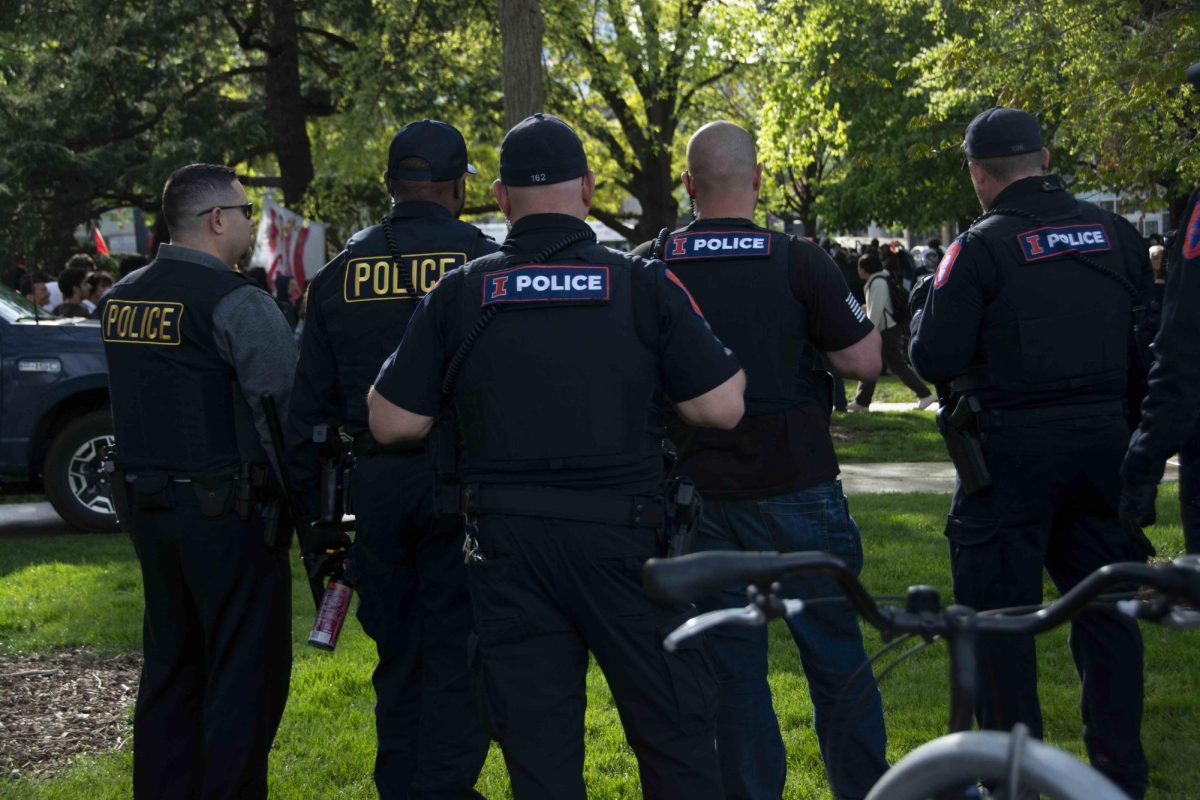Turn the music up on a Saturday night in Champaign, and you may not find a neighbor or a police officer waiting on your doorstep.
Instead, college students will find their peers issuing the warning.
With the partnership between the Champaign Police Department and the University Police Department, party patrols take loud party calls at private residences and Greek houses through the Metropolitan Computer-Aided Dispatch Center, which serves Champaign County.
Sgt. John Brown, head of the party patrol program at the University Police Department, said they are used to relieving police officers of less serious complaints.
“Instead of tying up a couple police officers, it allows the police officers to be available to patrol and respond to other more serious crimes,” Brown said.
Get The Daily Illini in your inbox!
Next time a complaint is issued at the same location, a uniformed police officer will be knocking on the door to give a $195 noise violation ticket.
The volume of calls for student patrol ranges from anywhere from two to nine between 9 p.m. to 3 a.m from Thursday to Saturday. For each call, the two party patrols are required to fill out paperwork asking the host(s) basic information, including their status as a University student, a Parkland student, or a non-student.
Both Brown and Daniel Zhang, patrol officer and junior in LAS, said safety has never really been an issue when responding to complaints. However, Zhang said he has felt uncomfortable before approaching a residence.
“The guy was definitely intoxicated. The person refused to give (his or her) name and slammed the door in my face,” Zhang said.
Patrol officers can request a uniform officer through the radio if the students believe that the party is “too much out of hand,” according to Brown.
The city of Champaign has proposed cutting the program to save over $6,000. According to University Police Lt. Skip Frost, if the cuts were to go through before this summer, the University Police Department has the option of picking up the program.
“We’re going to have to make a decision as a University Police Department,” Frost said. “Everybody says, ‘cut the budget, lower the taxes, but don’t take (the patrol officers because) that’s important to me.’”
The patrol officers are paid wages, but those are not the only expenses.
“We need to provide a vehicle. We need to put gas in the vehicle,” Frost said. “That’s going to be additional costs.”
Zhang said he enjoys his job, but he knows “there’s nothing (he) could do about it.”




